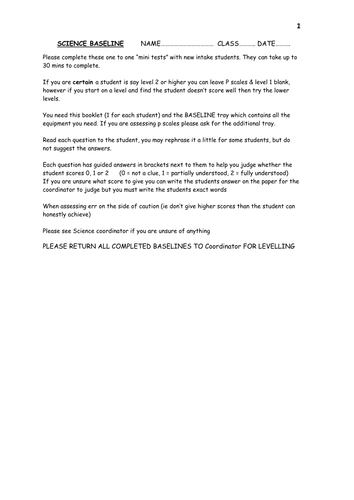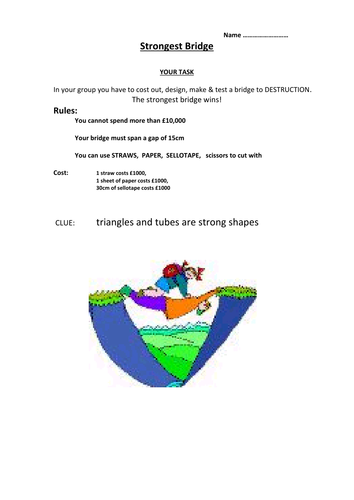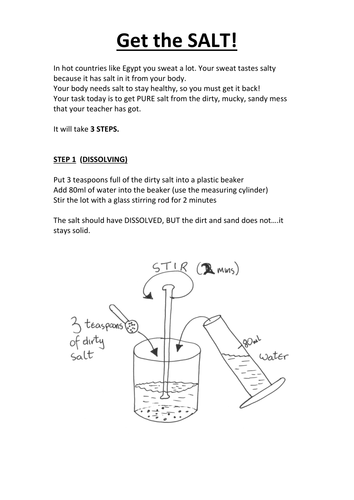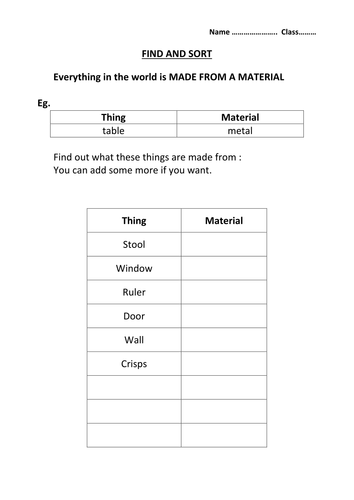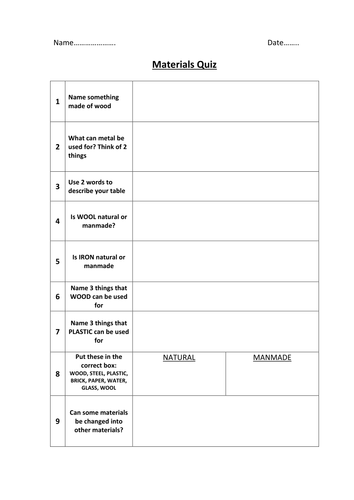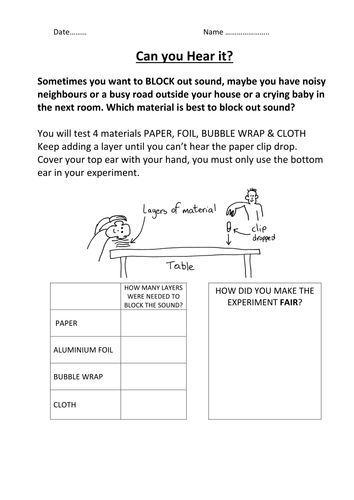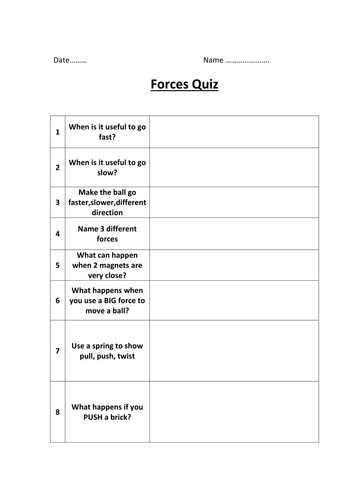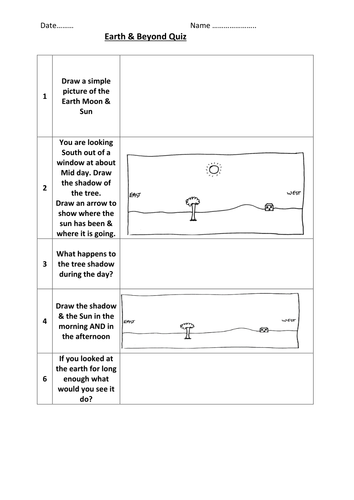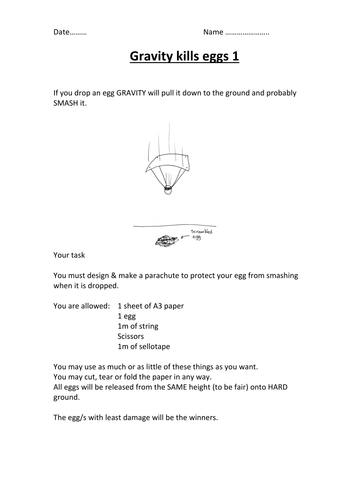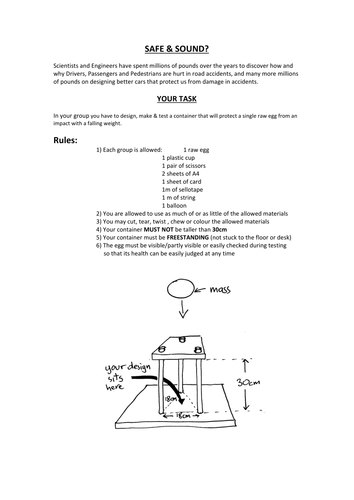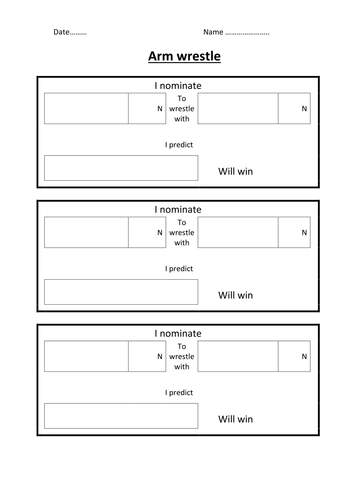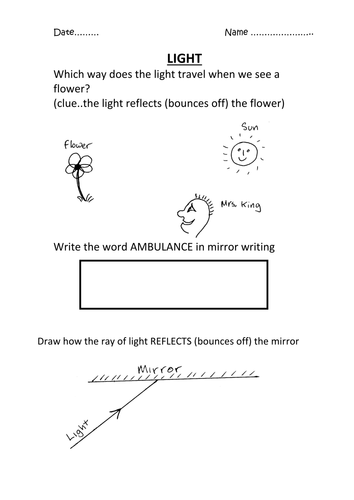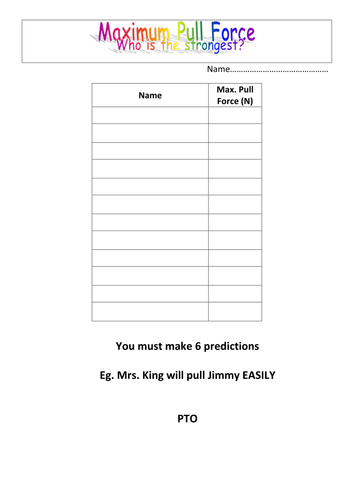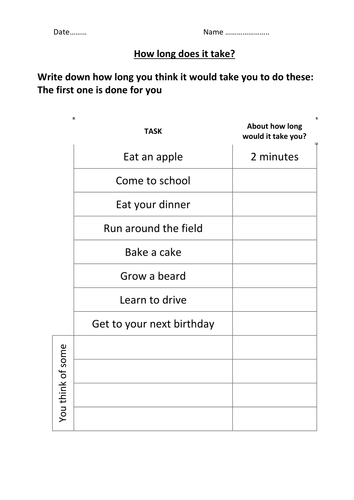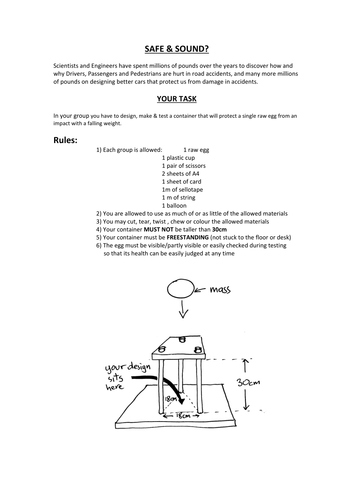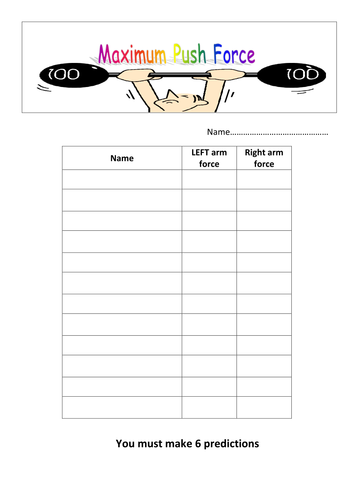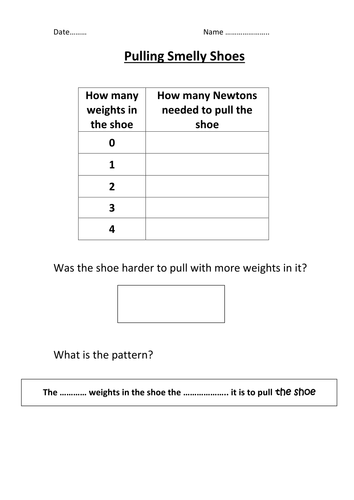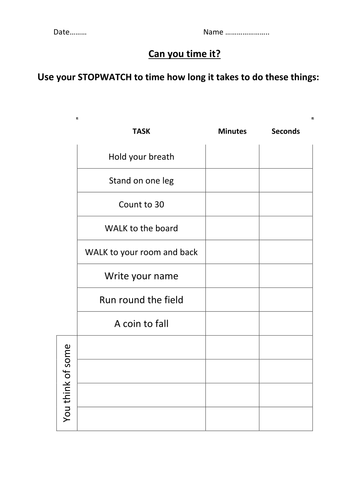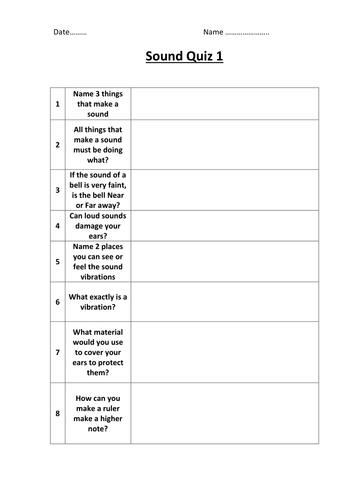
69Uploads
16k+Views
514Downloads
Physics

SCIENCE BASELINE assessment from level P4 to 4a (old NC levels)
I have used this assessment with students over the years and modified/improved as time went on.
I believe it to be a good way of assessing students when they are new to the school or even at the end of each year or indeed at any time you wish.
It is based around 4 small assessments for Biology, Chemistry & Physics, so a total of 12 mini-assessments.
Ideally the teacher or assistant spends up to 30 mins (can split the assessment over a few days if you wish but best results have been when the entire assessment is completed at one time) in a ONE TO ONE session.
The teacher/assistant reads the script (this is important as it reduces leading questions and clues to answers), the responses are noted down but in most cases a tick will indicate if the student has understood fully, partially understood or not understood at all.
Minimal resources are needed and are kept in a tray for use at any time. I believe doing or demonstrating science is a beautiful way to engage students, so the assesment uses this.
You will need to source basics like balloons, toy car, rocks etc.
I chose to set up 4 trays so 4 assessments could be completed at the same time (perhaps different classes)
The levels assessed are from P4 up to 4a old levels (which I believe are still useful) you may wish to change the names of the levels to suit your own school.
The script states which resources to use in each question as well as appropriate answers that should be expected for fully, partially and not at all levels of understanding. This allows staff that are not science trained to be able to complete these assessments with the students with relative ease.
Good luck

Build a bridge challenge
A simple challenge where students in small groups or on their own must decide which materials and much of them they should "buy" to build a bridge that must span a 15cm gap(between 2 chairs or boxes)
They are allowed a budget and must not spend more than allowed so must choose wisely.
The bride is tested to destruction by hanging masses (100g at a time) until the bridge fails

PERISCOPE template
A simple A4 template that allows students to make a small but useable periscope, you will need the mirror card to glue onto the periscope.
Challenges to make them longer...ie make an extension tube...does not need to be square! could be tin foil tube etc...periscope is cut in half and the ends slipped over the extension tube.
I have had students make a "sea" out of tables, they crawl around underneath and pop up a periscope in gaps between tables to look around.

Get the salt
Students are given some dirty salt (salt +sand/soil..whatever you wish) I have even simulated urine(orange juice) to reinforce the plight of poor hygeine in some countries.
The sheet takes students through the 3 steps of purifying the salt.
The final step of evaporating the water using evaporating basins can be tricky if the heat is left on too long.....if no bunsens/heat is available you can just leave the solutions to "dry out" naturally..you can get nice crystals forming over a couple of days.
Why not take the students out for fish and chips later on (keeping a sample of your salt to sprinkle on your chips)

Find and sorting materials
Simple worksheet that allows students to invstigate materials and their uses around school (at home for HW).
Students can look at specific objects(chair) and write down what it seems to be from.
Students are also encouraged to look for the material and say what it is used for...so that materials and properties are approached from both ways.
Then the more tricky task of putting materials into groups, students can classify them in their own way..get ready for some unusual classification techniques.
As an extension students can continue with materials/objects of their own choice..this usually introduces the student's own interests into scientific method.

Materials quiz
A simple quiz with well thought out and tested questions intended to stimulate thought and discussion about materials and their properties.
There is no mark scheme as I have found that students come up with unexpected but valid answers which can engage the class and foster interest

Can you hear it?
With limited resorces this gives students an opportunity to test out "sound proofing"
You just need a table, paper clip, ruler and a selection of materials that may be useful in blocking out the noise from a noisy neighbour
Give the students as much guidance as you like or alternatively, as I prefer, just give them the limited resorces and tell them to devise a "fair" test.
Potential for discussion, competition and looking silly walking around with ear protectors made out of the winning material

Earth and Beyond quiz
Short simple quiz that allows you to judge the understanding and level of your students

Parachuting eggs
A simple activity which gets students thinking about how things fall and how they can be protected when they hit the floor

EGG SQUASH
This is one of my most succesful Investigations/puzzles/problem solving tasks I produced and used over many years
The main aim is to protect a raw egg. Specif materials are given to "teams" they can use them abuse them, cut, rip, chew or even ignore them, but for FAIRNESS every team has the SAME materials.
This encourages Independent work, team work, prblem solving. It works well with motion studies: air bags, crumple zones etc.
The egg with it's protection is placed (by the students) onto the platform...The tricky news..you need to build a simple platform out of 2 bits of wood and 3 dowel rods..pretty easy really, mine has lasted 20 years but shows it.
The creation is placed on the base, you gently lower the top wooden board on top (sandwich like) and begin to drop a mass (I used a 2kg mass) from higher & higher..until the egg is "SQuashed" you must be able to see/feel the egg after each drop.
Over the years I have had spectacular successes & failures...lots of news paper on floor is useful.
Best ever result a 2kg drop from over 2.5m and the egg survived!..the crumple zone produced was superb.
Ideas the students had..air bag (balloon above egg/ below egg, egg INSIDE balloon and pumped up...great fun!
tubes made from paper/card, padding from ,aterials, hammocks using string etc etc
I spent the first lesson or 2 letting the students just make anything..next lesson...TESTED one by one infront of the class..then if you wish discuss the "Winner" & why?...then repeat expt if you wish for the next couple of lessons.
Before hand I usually did the "squash the egg with yiour hand" (in a clear plastic bag) yes I know you know they are strong but have you actually got the students to do it? got other staff..big bloke staff..crying because they can't...NO rings or fingernails just grip...then after they have tried and failed just drop iton the table to prove it is an egg!

Arm wrestle predictions
By simply looking at each other the students can "guess" who would win an arm wrestle.
Simply looking gives them a little EVIDENCE so they are actually predicting NOT just guessing.
BUT just looking is not good enough for dependable predictions so this worksheet is used again but after the PUSH force of every student is measured first using an ERGOMETER (very large newtonmeter)
students can then match a small force against a very large one , can be fun, even more fun is when closely balanced forces DO generally take ages and it is the cheering of the rest that decides the winner
This sheet allows for some surprises as you will discover the small, weaker students actually beat some bigger students because of training, clubs, etc

What do you know about light?
Thought provoking worksheet on light and what you thought about it.
Pictures are a great way to overcome conceptual difficulties, very friendly

TUG of war
Moving on from arm wrestling the students measure their max pulling force.
I usually hold one end of the ergometer and the students pull (steadily) the other, the whole class is done...you can have great fun here.
(no snatching as it is not fair)
2 goes each and the best force is recorded.
You do need a tug of war rope, but it is worth it's weight in gold.
Students predict who will win and hopefully see it is not the number of people that counts but the total force
1 vs 1, 2 vs 1, in some cases if the totals are closely balanced 3 vs 1 and it WORKS
ultimately the students predict a well balanced war using the whole class (FORCES not number of people is key)
students can draw and cut out people write names and forces on them and a poster (with a long piece of string) can be produced to show the 2 teams

How long does it take?
Simple activities to get students thinking abot time intervals and what they mean.
Everyday activities are thought about and estimates of time recorded on the worksheet

EGG SQUASH challenge
I use this often with many groups.
The challenge is to protect their raw egg by only using specific materials and amounts (FAIRLY all groups are given exactly the same materials) how much they use is up to them, they can cut, bend etc what they want
You must make a wooden jig, simple 2 bits of wood and 3 lengths of dowling, mine has lasted me 20 years so far and does not smell of eggs at all as it is washed everytime
The best result I have ever had was a tube(crum,ple zone and balloon (airbag) affair which protected the egg from a 2kg mass dropped on it from over 2m height

Arm wrestle better predictions
This sheet allows for the whole group to be measured one by one with an ergometer, have fun measuring each student's push force(much like a bullworker) for both arms. ie student holds one end of ergometer(large newton meter)in one hand close to waist while the other arm pushes the other end down from above. You can give the class 2 attempts as they watch their peers with better techniques get bigger FORCES and record the higher one
Then the fun starts picking arm wrestle competitions, some silly and easily predicted others beautifully balanced

Shoes weight and friction
Students use there own shoe, yes can get smelly, and use a newtonmeter to pull along a table, as the shoe is steadily moving the force being used is recorded. The experiment is repeated but with 100g mass (1N weight) is put into the shoe and so on with more weights
Studnts should spot the pattern of larger forces needed with heavier weights. This goes some way in explaining why big kids seem to have more grip

Timing challenge
Simple timing tasks using a stopwatch.
Everyday activities are timed to see how long they take and to see how close the student's previous estimates were.

Sound quiz
A nice sound quiz which gets more difficult as you go along.
A good way to introduce a sound topic, generate discussion and assess how much the students know

